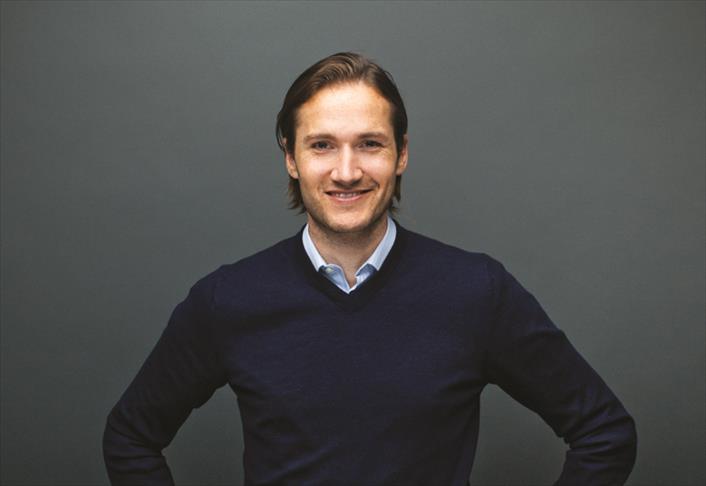
by Andrew Jay Rosenbaum
ANKARA
Delivery Hero CEO and co-founder Niklas Ostberg looks for more than just tasty dishes when he buys an online meal-delivery company – the Berlin-based firm recently acquired Turkey’s Yemeksepeti.com for $589 million.
Above all, it is a clear vision of the future, he tells Anadolu Agency in an exclusive interview.
“Even before starting Delivery Hero, our founders had been active in this business for quite a while, so we were very lucky to start with a proper product and had an idea about the key success factors for scaling up the business,” Ostberg says.
“In the beginning we grew mainly organically with some small acquisitions,” he adds. “Large acquisitions followed after we had significant amounts of capital at our disposal.”
“Above all we are looking for teams that think the same way as we do, with a strong focus on product and service, with a long-term vision for the business.”
Starting in Berlin in 2011, Delivery Hero now has operations in 34 countries, 1,500 employees and a $1 billion war chest of funding to finance growth and expansion.
Delivery Hero first expanded to Australia, Russia and Mexico in 2011. In early 2012 the enterprise then acquired Lieferheld in Germany and Hungryhouse.co.uk in the United Kingdom. From this point, the company raised venture capital funding to expand around the globe.
Ostberg says he is not set on continuing to expand into new territories.
“We currently focus on our leadership in product and service rather than expanding our business into new regions,” he explains.
The basic idea has not changed since the company’s beginnings. Online food-delivery platforms offer convenience and price advantages.
Consumers can locate restaurants according to cuisine or by location. Once they make their choice, consumers have a range of payment options – often more than the restaurant itself could offer – and a guaranteed delivery time. Delivery Hero takes a commission on the orders.
Ostberg himself has many years of experience in fine-tuning that approach. He cofounded pizza.nu in 2009, and grew the company until 2011. Before that he had been a consultant with Oliver Wyman, having worked previously in banking and consultancies.
Having a clear vision, Ostberg says, is particularly successful in the Middle East.
“People in the Middle East have an affinity for convenient delivery services. The U.S. is a huge market, but competition is much stronger there.”
Yemeksepeti, the largest online food delivery service in Turkey, was a natural acquisition target for Delivery Hero, Ostberg says.
“With a current user base of about 3.5 million, we still see a lot of growth potential, also with a view on population growth in Turkey and the Middle East. Offering new services will additionally enable us to target new customer segments,” he said.
Asked if he was concerned about the Turkish lira’s decline in value, Ostberg said it’s not the money, it’s the size that matters.
“A drop in the value of the Turkish lira doesn't affect us as much as most people would think as it's often reflected in size. Yemeksepeti for sure has an amazing size and has proven to be profitable in this business.”
Istanbul-based Yemeksepeti itself operates in 57 cities in Turkey and in north of Cyprus with 9,000 member restaurants, 2.9 million users, delivering 75,000 orders to 220,000 people on a daily basis.
The company has expanded to five different countries in the Gulf Cooperation Council region under the name Foodonclick.com.
Certainly Ostberg has achieved scope and size but profit may still prove elusive – the company does not release profit figures.
Rocket Internet, the German venture capital firm that has invested heavily in Delivery Hero, and of which it owns 39 percent, took a 20.2-million-euro ($22.5 million) loss last year, even though most of the firms it had invested in were growing fast – a significant number of these are in online food delivery.
This does not mean that Delivery Hero is not headed for significant profit on its own, however.
The popularity of the formula helps explain why Ostberg is not afraid of expanding the business through difficult economic conditions.
“Our service includes dishes in a low-price segment that are affordable for most people. That’s why we often see in recessions that less people go out to restaurants but even more people order takeaway because of the price point.
“There are many people out there who don’t feel like cooking every day,” he adds.
Anadolu Agency website contains only a portion of the news stories offered to subscribers in the AA News Broadcasting System (HAS), and in summarized form. Please contact us for subscription options.

